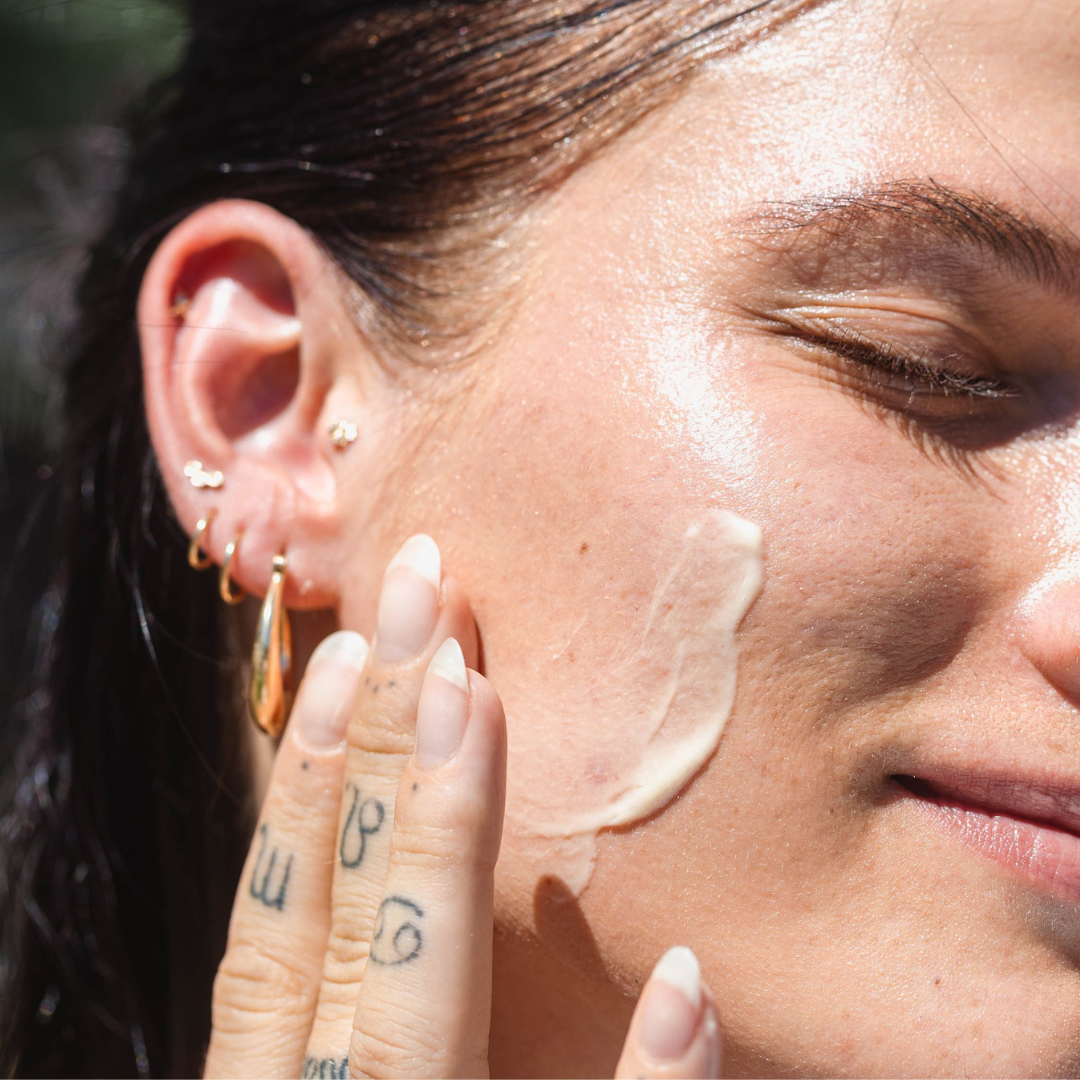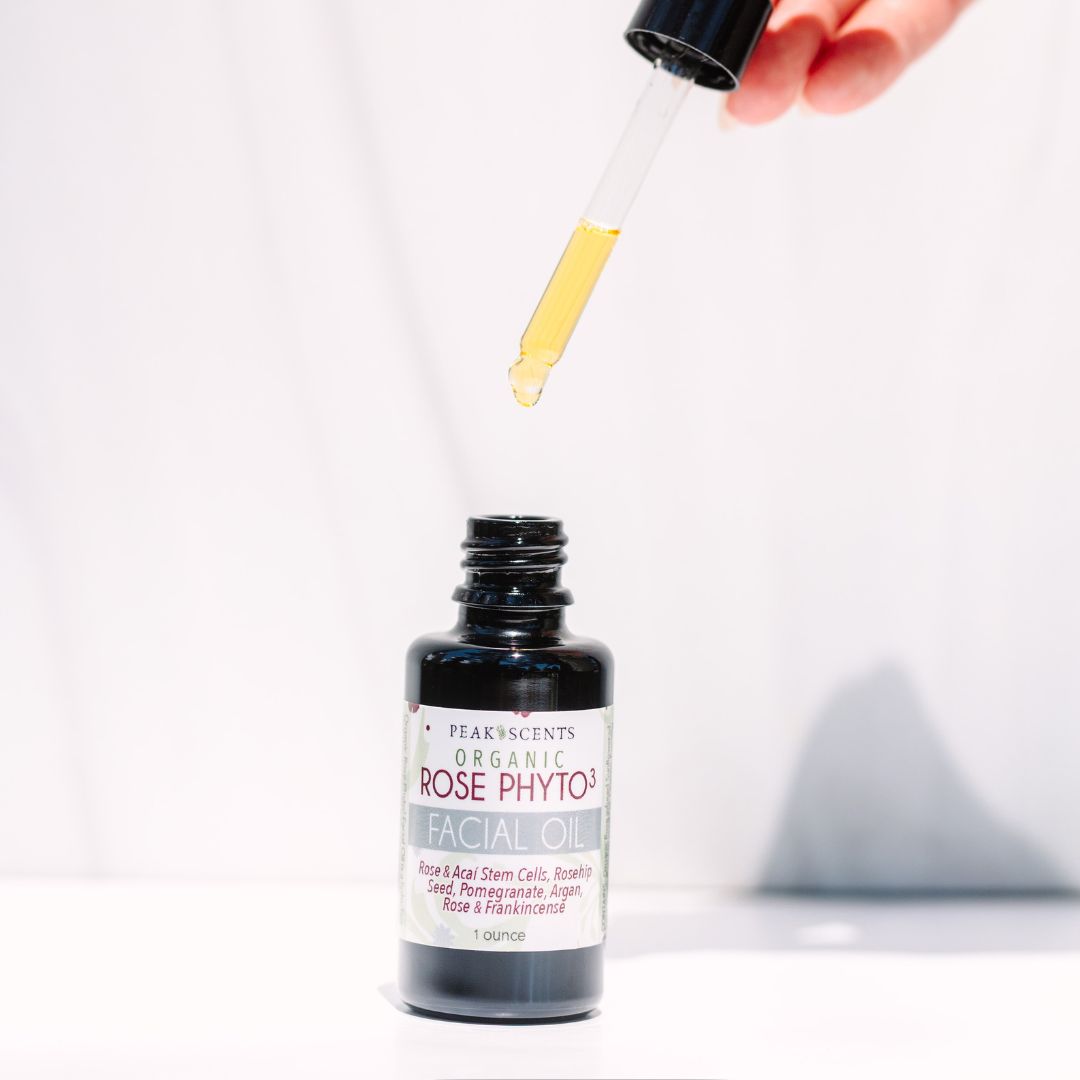Retinol has long been a popular ingredient in skincare, known for its ability to improve skin texture, reduce the appearance of fine lines and wrinkles, and combat signs of aging. However, there are some potential drawbacks to using traditional retinol products. In this blog post, we'll explore what's wrong with retinol and why you might want to consider a plant-based retinol alternative in your skincare routine.

The Downsides of Retinol:
-
Skin Sensitivity: One of the most common issues with retinol is skin sensitivity. Retinol can cause redness, peeling, and irritation, especially when first introduced to your skincare routine. Some people may find it too harsh for their skin type.
-
Sun Sensitivity: Retinol can make your skin more sensitive to the sun's harmful UV rays, increasing the risk of sunburn and long-term sun damage. It's essential to use sunscreen diligently when using retinol products.
-
Dryness and Flakiness: Retinol can strip the skin of moisture, leading to dryness and flakiness. This can be particularly problematic for individuals with dry or sensitive skin.
-
Potential for Side Effects: In some cases, retinol can cause adverse side effects like redness, itching, and peeling. People with certain skin conditions or sensitivities may be more prone to these side effects.
Scientific Studies on Retinol-Induced Skin Damage:
Several scientific studies have raised concerns about skin damage associated with retinol use:
-
A Study Published in the Journal of Investigative Dermatology (2006): This study found that retinol, when applied topically, can increase the skin's sensitivity to UV radiation and lead to more significant UV-induced damage. This research underscores the importance of sun protection while using retinol products.
-
A Study in the Journal of the American Academy of Dermatology (1998): This study examined the side effects of topical retinol use. It reported a higher incidence of skin irritation and dryness among individuals using retinol-containing products.
-
A Study in the Journal of Cosmetic Dermatology (2006): This study highlighted the potential for retinol to cause skin peeling and dryness. It recommended the use of moisturizers alongside retinol products to counteract these effects.
In light of these potential side effects and scientific findings, many individuals are turning to plant-based retinol alternatives like bakuchiol, which offer similar skincare benefits with a reduced risk of skin irritation and damage.
-
Why Choose Bakuchiol (Babchi) a Plant-Based Retinol Alternative?
Using a plant-based retinol alternative can offer several benefits, making it an attractive choice for skincare. Here are the key advantages:
-
Gentler on the Skin: Plant-based retinol alternatives are often less harsh and can be gentler on the skin compared to traditional retinol. This means they are less likely to cause irritation, redness, or peeling, making them suitable for individuals with sensitive skin.
- Reduced Risk of Sun Sensitivity: Unlike traditional retinol, which can increase sensitivity to the sun, plant-based alternatives do not have the same photosensitizing effects, reducing the need for extensive sun protection.
-
No Animal-Derived Ingredients: Plant-based alternatives are cruelty-free and do not involve the use of animal-derived ingredients. This aligns with ethical and environmental concerns, making them a more sustainable and compassionate choice.
-
Sustainability: Many plant-based sources for retinol alternatives are sustainable and environmentally friendly. Sustainable sourcing practices help reduce the ecological footprint of skincare products.
-
Natural and Organic Options: Plant-based retinol alternatives often come from natural and organic sources, catering to those who prefer cleaner and more natural skincare ingredients.
-
Suitable for Vegans and Vegetarians: Plant-based alternatives are suitable for vegans and vegetarians who avoid animal-derived products, including traditional retinol, which can be sourced from animal sources like liver or fish oil.
-
Safe During Pregnancy and Breastfeeding: Some plant-based alternatives, such as bakuchiol, are considered safe for use during pregnancy and breastfeeding, offering skincare benefits without potential risks to the baby.
-
Reduced Risk of Allergies: For individuals with allergies or sensitivities to Retinol, plant-based alternatives reduce the risk of adverse reactions, making them a safer choice.
-
Promotes Collagen Production: Plant-based retinol alternatives can promote collagen production, helping to improve skin elasticity and reduce the appearance of fine lines and wrinkles.
-
Enhanced Skin Texture: These alternatives can help smooth skin texture, making the skin feel softer and look more radiant.
-
Brightens Skin: Some plant-based alternatives have skin-brightening properties, reducing the appearance of dark spots and uneven pigmentation.
-
Hydrating and Moisturizing: Plant-based retinol alternatives often contain moisturizing ingredients, helping to keep the skin hydrated and preventing dryness
A study in the British Journal of Dermatology compared bakuchiol and retinol for 12 weeks and came to some amazing conclusions:
Study Overview: For 12 weeks, 44 people tried either bakuchiol 0.5% cream twice a day or retinol 0.5% cream once daily. Fancy cameras snapped pics of their faces at 0, 4, 8, and 12 weeks. The testers also rated how comfy or not the products felt. And get this, a dermatologist, like a secret skincare agent, graded their skin's pigmentation and redness without knowing who used what.The Cool Stuff: Guess what? Both bakuchiol and retinol waved their magic wands and reduced wrinkles and dark spots. High-fives all around! But here's the kicker: Bakuchiol did it with fewer complaints.
In a Nutshell: Bakuchiol is like the friendly cousin of retinol. They both do a great job making your skin look younger, but bakuchiol does it with a lot less drama. So, if you want the benefits without the stinging and peeling, bakuchiol might be your new skincare BFF.
Where to Read More: If you're itching for all the juicy details, you can check out the full study in the British Journal of Medicine. Look for "Comparative Efficacy of Bakuchiol and Retinol in Addressing Facial Ageing."
Our Plant-Based, Organic Retinol Alternative not only has Bakuchiol but also includes these skin loving ingredients:
-
Bakuchiol: Bakuchiol is a natural, plant-based alternative to retinol derived from the babchi plant. It offers similar benefits to retinol, such as improved skin texture and reduced signs of aging, without the associated sensitivity and irritation.
-
Vitamin B3 (Niacinamide): Vitamin B3 is known for its soothing properties and its ability to strengthen the skin's natural barrier. It can help reduce redness and inflammation, making it an excellent addition to your skincare routine alongside bakuchiol.
-
Hyaluronic Acid: Hyaluronic acid is a powerhouse ingredient for hydration. It helps to retain moisture in the skin, combating the dryness and flakiness that can come with retinol use.
-
Vitamin C: Vitamin C is a potent antioxidant that can brighten the skin, reduce the appearance of dark spots, and protect against environmental damage. When used with bakuchiol and other ingredients, it can enhance the overall benefits of your skincare routine.
- Rosehip Seed Oil: moisturizes, offers antioxidant protection against free radicals, and promotes collagen synthesis, making it effective for anti-aging, scar reduction, and skin brightening.
-

While retinol can be effective for improving skin texture and reducing signs of aging, it may not be suitable for everyone due to its potential for sensitivity and other side effects. Choosing a plant-based retinol alternative that includes bakuchiol, Vitamin B3, hyaluronic acid, and Vitamin C can provide similar benefits with no drawbacks. This combination of ingredients can help you achieve healthy, radiant skin without the downsides of traditional retinol products.
The journey to radiant, youthful skin doesn't have to be a rocky road filled with retinol-induced sensitivity. Opting for a plant-based retinol alternative with bakuchiol, Vitamin B3, hyaluronic acid, and Vitamin C can offer you similar benefits minus the hassles.
Ready to take the plunge into the world of plant-based skincare? Why not try our Organic Rose Phyto3 Babchi Retinol Alternative Serum now? It's packed with all the goodness your skin craves without the drama.

